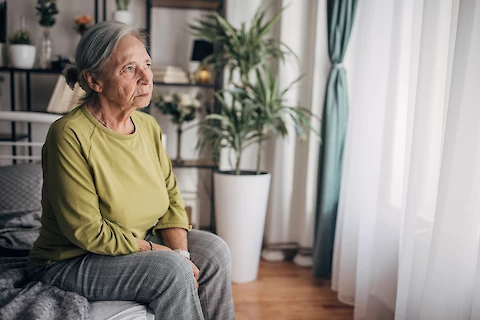
As daylight lessens, many seniors may experience seasonal mood changes or a case of the "winter blues." It's an issue that can hinder not only their daily activities but their overall quality of life, too. That's why taking proactive measures to maintain mental health during fall and winter is important.
From staying active and engaging in stimulating activities to maintaining proper nutrition and regular sleep patterns, there are several ways to ensure mental well-being during this time. Let's explore these strategies and their significance in maintaining mental health as the days get shorter.
Understand Seasonal Mood Changes
Seasonal affective disorder (SAD) is a type of depression that can occur when the daylight hours decrease. In seniors, these mood changes can be more pronounced. Recognizing the signs of SAD, such as a persistent low mood or loss of interest in activities, is vital to combating the condition.
Stay Physically Active
Physical activity can significantly enhance mental health. A little movement can go a long way, whether it's a walk around the neighborhood or an indoor exercise class. Dedicated caregivers from Senior Helpers can plan and facilitate these activities, making sure our seniors maintain a healthy lifestyle. Of course, everyone should consult with their healthcare provider before starting a new exercise routine.
Engage in Stimulating Activities
Mental stimulation contributes significantly to overall well-being. Activities like puzzles, reading, or even learning a new skill can keep the mind active. With the support of our caregivers, seniors can engage in these stimuli without the stresses of planning and preparation.
Eat Healthy
Nutrition is another fundamental factor in mental health. Eating a balanced diet full of fruits, vegetables, lean protein, and whole grains can help enhance mood and energy levels. Our caregivers can assist in planning and preparing nutritious meals, tailoring them to individual tastes and dietary needs.
Establish Regular Sleep Patterns
Sleep plays a pivotal role in mental health. Maintaining regular sleep patterns is important, even as daylight hours decrease. This includes sticking to a consistent bedtime and ensuring the sleep environment is comfortable. Our caregivers can help establish these routines, ensuring healthy sleep habits are a priority.
Stay Socially Engaged
Social interaction remains key. Staying connected with friends, family, or community can help combat feelings of isolation during winter. Senior Helpers team members are indispensable in facilitating social interactions, whether organizing virtual meet-ups or accompanying seniors to community events.
Keep Up With Health Appointments
Seniors who feel a significant change in mood during fall or winter should check in with their primary healthcare provider. They'll help determine if underlying issues need to be addressed, and they can prescribe supplements or medications to combat SAD. They may even recommend light therapy. Seniors may also benefit from mental health care, including talk therapy and psychiatry.
Let Senior Helpers Let In the Light
Maintaining mental health through the fall and winter months is a top priority. Every aspect plays a significant role, from promoting physical activity and mental stimulation to ensuring proper nutrition and sleep habits. At Senior Helpers Menifee Valley, we're devoted to assisting our seniors in implementing these strategies. If you live in Lake Elsinore, Menifee, Perris, Nuevo, and Homeland, we're here to support you. Contact us today to learn how we can help ensure your well-being through every season.